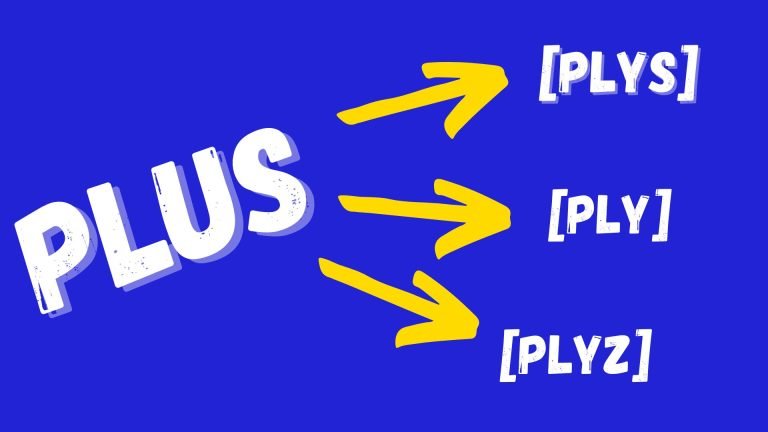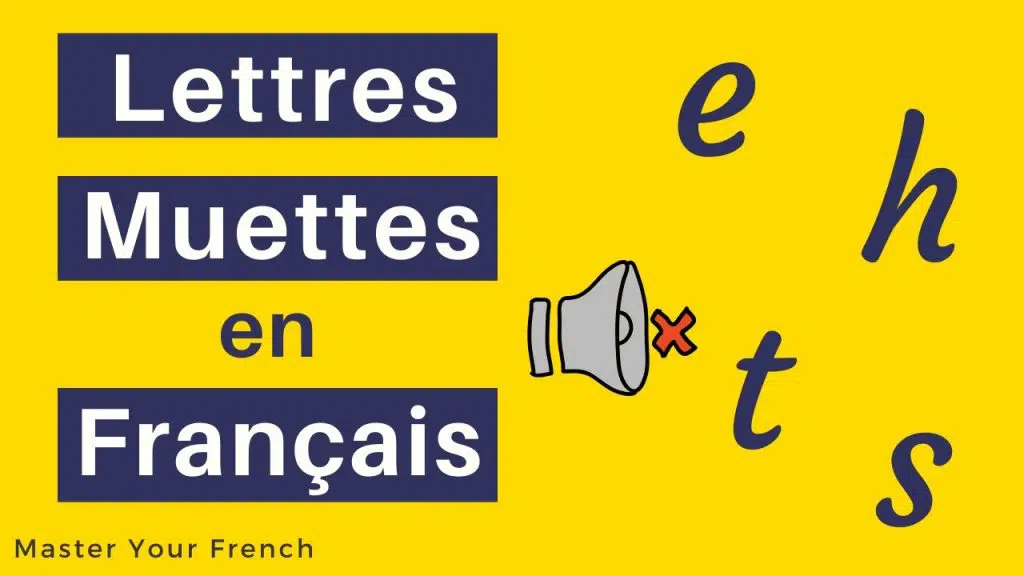Plus: 3 different pronunciations in French
Updated: December 16, 2023 by Mylene in Pronunciation LessonsArray ▪

Plus is one of the words we use every day. This word can be an adverb (plus) or a noun (un plus). When plus is a noun, you will always pronounce the [s] sound at the end. However, when the word plus is an adverb, the pronunciation becomes more complicated. To make it easier for French learners, this article breakdowns the pronunciation rules for the word plus when it’s used as an adverb. I tried to simplify the pronunciation rules in the following:
1. S is mute : plus is pronounced [ply]
a. In a negative sentence, the S is not pronounced before a consonant or at the end of the statement:
- Je ne veux plus de café. I don’t want anymore coffee.
- Moi non plus. Me neither
b. When plus means more/still and is placed before a consonant (other than “de” and “que”):
- Il est plus petit que moi. He’s shorter than me?
- Va plus vite ! Go faster!
- C’est le plus rapide. It’s the fastest.
c. In some expressions:
- Ni plus ni moins. no more no less:
- Il n’a ni plus ni moins raison. He is neither more nor less right.
2. S is pronounced [s] : plus is pronounced [plys]
a. When plus is used in math:
- Un plus un égale 2. One plus one equals 2.
- Il fait plus six. It’s over six.
b. When plus means more/even more and is located in front of “de”, “que” or at the end of a statement:
- Je veux plus de café. I want more coffee.
- Il y a plus de vent aujourd’hui. There is more wind today.
- Je voudrais économiser plus. I would like to save more.
- Il boit plus que moi. he drinks more than me.
- Pierre a trouvé le plus de balles. Pierre found the most balls.
- Un peu plus. A bit more.
- Rien de plus. Nothing more.
c. Exception: in front of a number. Plus is pronounced [ply] before a number.
- Les plus de soixante ans, those over sixty: the S is silent.
- Il a plus de 2 ans, he is more than 2 years old: the S is mute.
d. Expression :
- de plus, en plus, au plus, tout au plus ; de plus, en plus, au plus, tout au plus :
- De plus il a raison. Besides, he’s right.
The mastery of French pronunciation requires dedication and practice. Start by discovering more pronunciation rules by following MasterYourFrench on Youtube.
3. S is pronounced [z] with a liaison : plus is pronounced [plyz]
a. In a negative sentence and when plus is before a vowel:
- Je n’ai plus envie. I do not want anymore.
Explore the rules and examples of required liaisons after monosyllabic words in French.
b. When plus means more/even more and is placed before a vowel:
- Il est plus avantageux d’acheter maintenant. It is more advantageous to buy now.
- Elle est plus aimable que lui. She’s nicer than him.
c. In some expressions:
- Qui plus est, furthermore
- Qui plus est, il est d’accord. What’s more, he agrees.
- De plus en plus, more and more
- Il fait de plus en plus chaud. It’s getting hotter and hotter. The first “plus” is pronounced [plyz] and the second plus is pronounced [ply].
- Plus …, plus … More… more …
- Plus on se réveille tôt, plus on se couche tôt. The earlier we wake up, the earlier we go to bed.
- Plus ou moins, more or less
- Il a plus ou moins raison. He is more or less right.
To learn more
The pronunciation of ‘S’ varies depending on its position in the word, adjacent letters, and other factors. This pronunciation depends a lot on the context and position in the word. As we have seen in this article, the word plus, the ‘S’ is not pronounced the same way at all if it is in front of a consonant, a vowel, in a negative sentence, etc. Learn how to pronounce the letter ‘S’ when placed between two vowels within a word.
This post is also available in Français.

